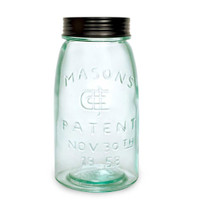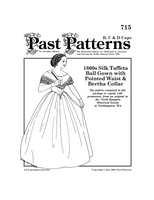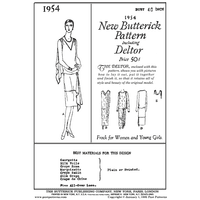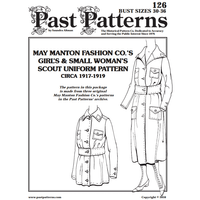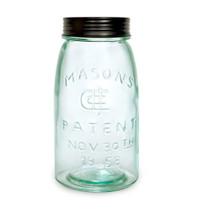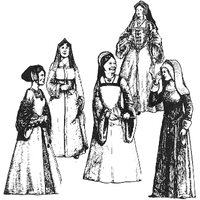 Loading... Please wait...
Loading... Please wait...Categories
Add to Wish List
New Products
- Home
- Historic Patterns
- By Era
- Renaissance & Elizabethan
- Women's
- Early Tudor Woman's Gowns
Product Description
c. 1490-1535 A.D.
Includes patterns for 5 gowns (sizes 6-20). This garments are complimented by MM052, MM090, MM092 and MM093.
The Tudor period marked the beginning of the Renaissance in England,and fashion (especially after 1509) reflected the change. Henry VII, who usurped the throne in 1485, was extremely frugal, and fashion changed slowly during his reign. Henry VIII inherited the throne with a large treasury at the age of 18, and the court blossomed. He was insecure, aggressive, blatantly masculine and suddenly extremely rich. All of which reflected in the opulent new fashions, especially for men. During Henry's reign, styles for both sexes combined elements of German, Spanish and Italian fashions, with heavy French influence overall.
As befitted their role in society, woman's fashions were somewhat less flamboyant then the men's. The kirtle was almost identical to a cotehardie (MM021), with the addition of cuffs. The skirts started to be cut separately from the bodice, with the cut of the bodice neck line becoming square. With the adoption of tight corsets and Spanish farthingales (MM090) early in Henry VIII's reign. The style developed into the silhouette of a small cone inverted into a larger one. To allow more variety, the underskirt and under sleeves we not sewn to the gown.

